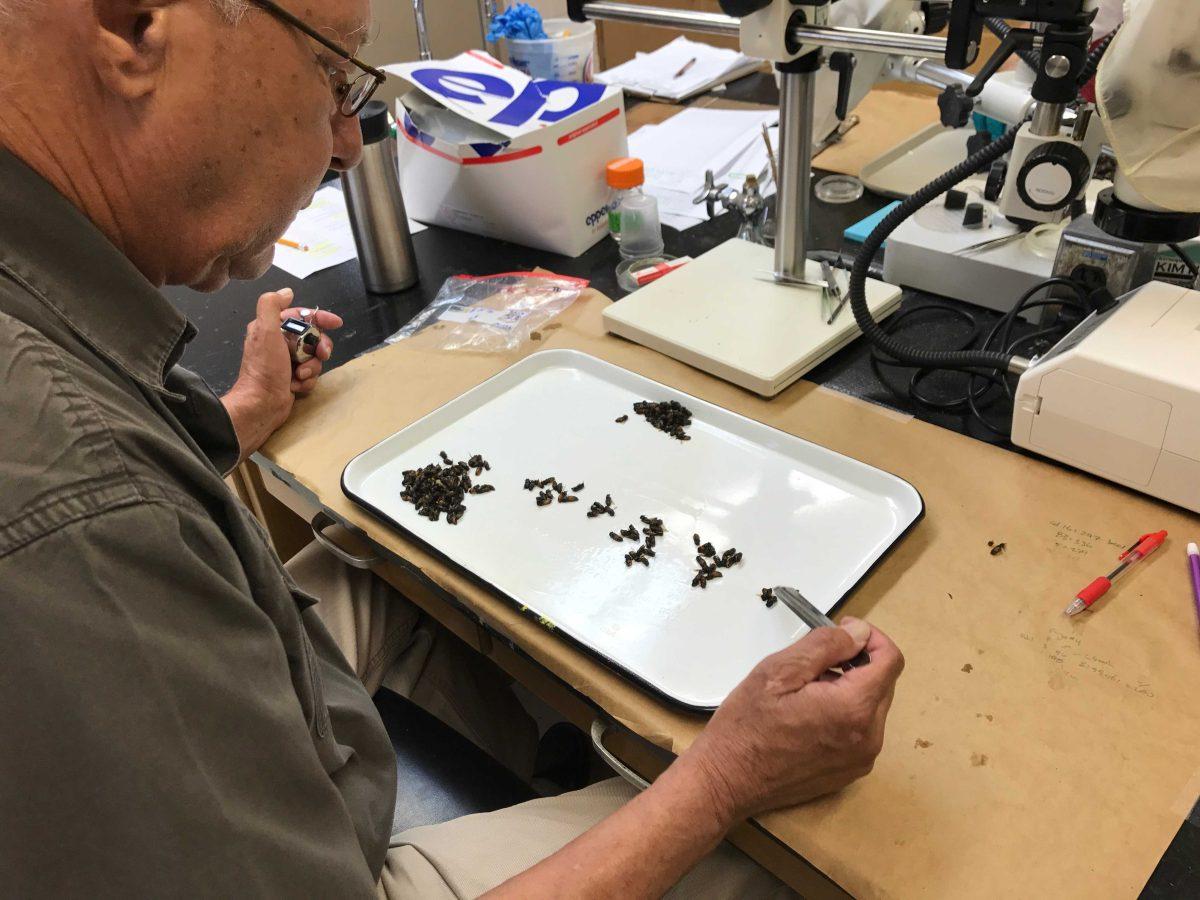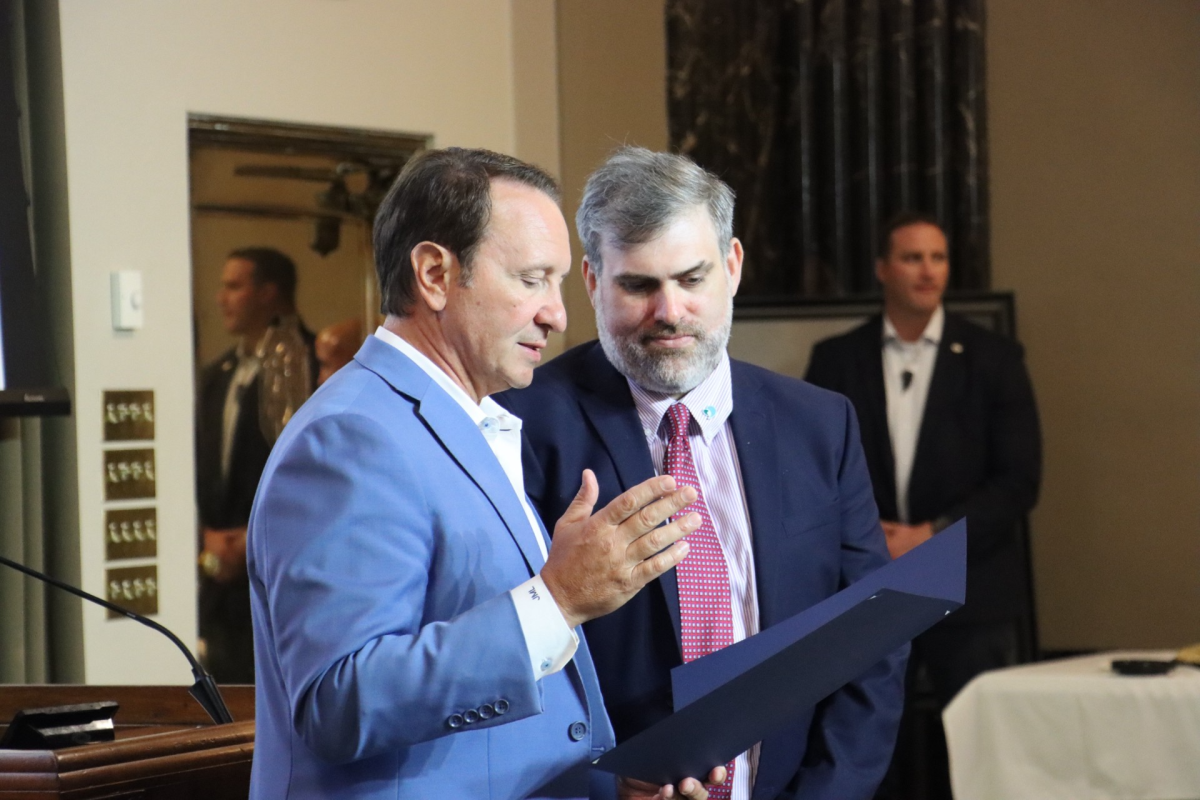The LSU AgCenter has partnered with the U.S. Department of Agriculture to study the declining honeybee population.
Kristen Healy, an assistant professor in the Department of Entomology, emphasized the importance of honeybees to humans.
“Honeybees are incredibly important,” Healy said in a news release. “Actually, one out of every three bites of food that we eat rely on honeybees or bees in general for pollination.”
The honeybee population decline was first seen in 2006 due to colony collapse disorder. This occurs when adult bees disappear from the colony almost all at the same time while the queen and immature bees were often found in the hive with plenty of food stores.
Beekeepers across the United States lost 33 percent of their honeybee colonies between April 2016 to April 2017, according to the latest preliminary results of an annual nationwide survey.
“While it is encouraging that losses are lower than in the past, I would stop short of calling this ‘good’ news,” Dennis vanEngelsdorp, an assistant professor of entomology at the University of Maryland and project director for the Bee Informed Partnership, told phys.org. “Colony loss of more than 30 percent over the entire year is high. It’s hard to imagine any other agricultural sector being able to stay in business with such consistently high losses.”
A new grant will allow entomologists, researchers at the USDA Honey Bee Breeding, Genetics and Physiology Research Unit in Baton Rouge and the largest beekeeper in the country to study how stress factors impact honeybees in a two-year study following 400 hives. Their research will include how pesticides, pathogens, and viruses affect bees.
The team working on the project includes Healy, USDA Research Molecular Biologist Michael Simone-Finstrom, USDA Research Leader and Research Entomologist Bob Danka, USDA Research Entomologist Frank Rinkevich and University assistant professor Daniel Swale.
Honeybees are not just pollinating flowers and fruits. They are also vital for almond production. According to Simone-Finstrom, about 80 percent of bee colonies in the country are shipped to California for almond production. There is also evidence that they play an important role in coffee bean production.
“Bees have these immune systems and protein regulation systems that in many ways work like any other livestock and to try to get a better handle on that can improve bee health,” Simone-Finstrom said. “Our goal here is to promote bee health and to breed honeybees that can withstand different diseases and these stressors that they’re experiencing.”
The Varroa mite, an external parasite also known as the Varroa destructor, affects bees more than anything else. It weakens their immune system and makes them more susceptible to viruses such as the deformed wing virus, often infecting entire colonies.
“The biggest thing is really creating that awareness that these bees aren’t just visiting your flowers because they’re pretty,” Simone-Finstrom said in a news release. “This is their food. Honeybees are doing so much of the background work. Even if we think about how they indirectly make things. There is some contribution of pollinating alfalfa, which cows feed on for dairy production. If you don’t have that bee pollination, not just honeybees but all pollinators, then you’re kind of losing out on that production of dairy. There are all of these small indirect things that lead to really large effects.”











